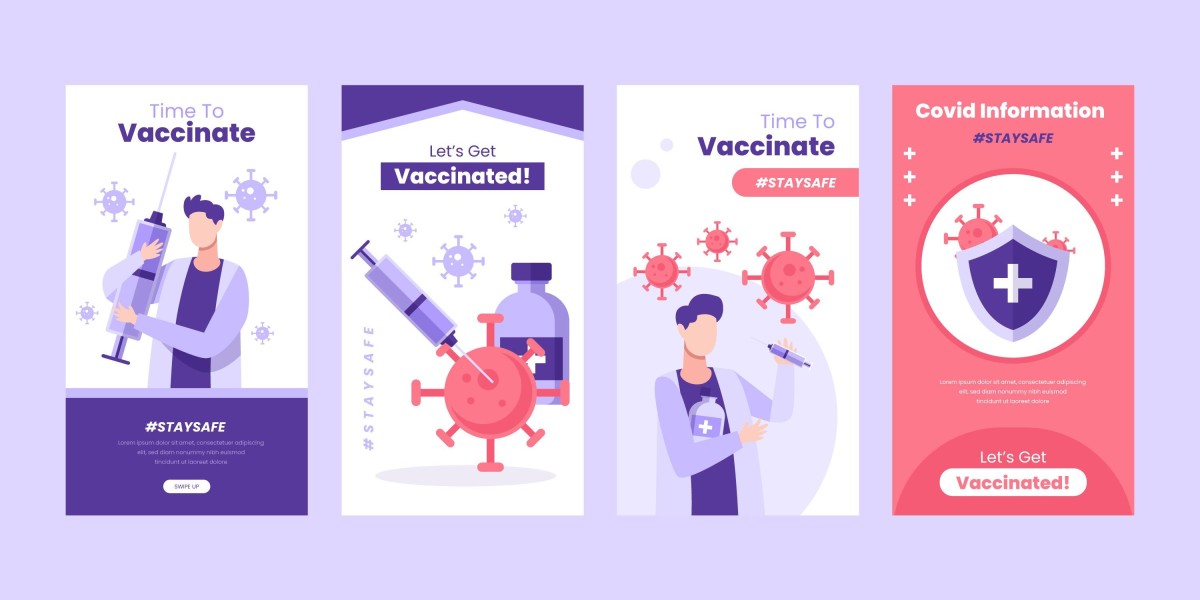Immunisation services play a crucial role in safeguarding the health of newborns by protecting them from serious infectious diseases. Newborns are particularly vulnerable to infections due to their underdeveloped immune systems, making immunisation a vital part of early childhood care. In Point Cook, families rely on immunisation clinics to provide these essential services. But many parents often question the safety of immunisations for their newborns. This article aims to provide comprehensive information on the safety of immunisation services, addressing common concerns and providing reassurance to parents.
Understanding Immunisation Services for Newborns
What Are Immunisation Services?
Immunisation services involve administering vaccines to prevent diseases. Vaccines contain weakened or inactive parts of a particular organism (antigen) that triggers an immune response within the body. This response enables the immune system to recognize and fight the actual disease if the individual is exposed to it in the future. By receiving vaccines, newborns develop immunity against harmful pathogens without suffering from the actual diseases.
Common Vaccines for Newborns
At an immunisation clinic or an immunisation point in areas like Point Cook, newborns typically receive several vaccines to protect them from various illnesses. Some of the common vaccines include:
- Hepatitis B Vaccine: Administered shortly after birth to prevent Hepatitis B, a serious liver infection.
- Rotavirus Vaccine: Given to protect against rotavirus infections, which can cause severe diarrhea and vomiting.
- DTaP Vaccine: A combination vaccine that protects against Diphtheria, Tetanus, and Pertussis (whooping cough).
- Hib Vaccine: Prevents Haemophilus influenzae type b infections, which can lead to meningitis.
- Pneumococcal Vaccine: Guards against pneumococcal infections that can cause pneumonia, meningitis, and sepsis.
- Polio Vaccine: Protects against poliovirus, which can lead to paralysis.
Schedule of Immunisation for Newborns
Newborns are typically vaccinated according to a recommended schedule designed to provide early protection. This schedule, developed by health authorities such as the World Health Organization (WHO) and local public health agencies, outlines the timing and frequency of each vaccine. Following the immunisation schedule is crucial for optimal protection against infectious diseases.
The Safety of Immunisation Services
Regulatory Standards for Vaccine Safety
Vaccines undergo rigorous testing and regulation to ensure their safety and efficacy. In countries like Australia, the Therapeutic Goods Administration (TGA) oversees vaccine approval. Before a vaccine is made available at an immunisation clinic, it must pass through multiple phases of clinical trials, including:
- Preclinical Testing: Laboratory and animal testing to evaluate safety and efficacy.
- Phase I Trials: Small-scale trials on a few dozen volunteers to assess safety and immune response.
- Phase II Trials: Expanded trials on hundreds of people to further evaluate safety and dosage.
- Phase III Trials: Large-scale trials involving thousands of participants to confirm effectiveness and monitor side effects.
Only after successfully passing these stages can a vaccine be approved for public use.
Post-licensing Monitoring
Even after a vaccine is approved and available at immunisation clinics, its safety is continuously monitored. Post-licensing surveillance systems track vaccine-related side effects and adverse events. These systems, such as the Vaccine Adverse Event Reporting System (VAERS) and similar databases worldwide, ensure that any potential issues are quickly identified and addressed.
Common Concerns About Immunisation Safety
Are Vaccines Safe for Newborns?
Many parents wonder if vaccines are safe for their newborns. The answer is yes. The safety of vaccines for newborns is well-established through extensive research and monitoring. The benefits of immunisation far outweigh the risks of potential side effects, which are generally mild and temporary.
Potential Side Effects
It’s normal for vaccines to cause some mild side effects, as they indicate the body is building protection. Common side effects at an immunisation point cook location or other immunisation clinics may include:
- Redness or swelling at the injection site
- Mild fever
- Fussiness or irritability
Serious side effects are rare, but if they occur, healthcare providers are trained to manage them immediately.
Ingredients in Vaccines
Concerns about vaccine ingredients often arise, but it’s important to understand that every component of a vaccine is thoroughly tested for safety. Common ingredients include:
- Antigens: The part of the vaccine that triggers the immune response.
- Adjuvants: Substances like aluminum that enhance the body’s immune response.
- Preservatives: Such as thimerosal, which prevent contamination.
- Stabilizers: Ingredients like gelatin that help maintain vaccine effectiveness during storage and transport.
These ingredients have been proven safe in the amounts used in vaccines.
Evidence Supporting the Safety of Immunisation
Scientific Studies and Research
Numerous scientific studies support the safety and effectiveness of vaccines. Research consistently shows that vaccines are effective at preventing disease and are safe for use in newborns. Large-scale studies involving millions of participants have demonstrated that vaccines do not cause autism or other chronic conditions, debunking common myths.
Success Stories of Immunisation
The success of immunisation is evident in the eradication and control of various diseases. Smallpox has been eradicated globally, and polio is on the brink of eradication due to widespread vaccination efforts. These successes highlight the critical role immunisation services play in protecting public health.
What to Expect During and After Immunisation
The Immunisation Process
At an immunisation point or clinic, parents can expect a straightforward and efficient process when bringing their newborns for vaccination. Here’s what typically happens:
- Registration: Upon arrival, parents provide necessary identification and vaccination records.
- Consultation: A healthcare provider discusses the vaccines to be administered, addressing any questions or concerns.
- Vaccination: The nurse or doctor administers the vaccine through an injection or oral drops.
- Observation: After the vaccine, the child may be observed for a short period to ensure there are no immediate reactions.
Post-Immunisation Care
After immunisation, newborns may experience mild side effects such as a slight fever or soreness at the injection site. Parents can help soothe these reactions by:
- Keeping the child comfortable and well-hydrated
- Using a cool, damp cloth to ease redness or swelling
- Offering extra cuddles and reassurance
Signs of Normal Reactions vs. Warning Signs
While most reactions are mild, parents should be aware of warning signs that may indicate a more serious issue, such as:
- High fever (over 39°C or 102°F)
- Persistent crying or irritability
- Severe allergic reaction (e.g., difficulty breathing, hives)
If these symptoms occur, it’s important to seek medical attention promptly.
Addressing Parental Concerns
Talking to Healthcare Providers
Open communication with healthcare providers is essential for addressing concerns about immunisation safety. Parents are encouraged to ask questions and seek clarification from doctors and nurses at their local immunisation clinic. Healthcare providers can provide reliable information and guidance tailored to individual needs.
Debunking Myths and Misconceptions
Misinformation about vaccines can lead to unnecessary fear and hesitation. Some common myths include the belief that vaccines cause autism or that natural immunity is better than vaccine-acquired immunity. These claims have been thoroughly debunked by scientific research. Vaccines are proven to be safe and effective in protecting against serious diseases.
The Role of Herd Immunity
How Immunising Newborns Protects the Community
Herd immunity occurs when a significant portion of the population is immunised, reducing the spread of disease. By vaccinating newborns, we help protect those who cannot be vaccinated, such as infants too young for certain vaccines or individuals with compromised immune systems.
Impact on Vulnerable Populations
Immunisation services play a crucial role in protecting vulnerable populations. When a high percentage of the community is vaccinated, the spread of contagious diseases is minimized, protecting those who rely on herd immunity for their safety.
FAQs About Immunisation Safety for Newborns
Are There Long-Term Side Effects of Vaccines?
Extensive research has shown that vaccines do not cause long-term health issues. The side effects are usually mild and short-lived, with serious side effects being extremely rare.
Can My Newborn Get Sick from a Vaccine?
Vaccines are designed to stimulate the immune system without causing illness. The components used in vaccines are either weakened, inactivated, or parts of the germ, so they cannot cause the disease.
Why Are Multiple Doses Needed?
Some vaccines require multiple doses to build and maintain immunity. Each dose boosts the immune system’s ability to fight off the disease.
How Are Vaccines Developed and Tested?
Vaccines undergo rigorous testing, including laboratory research, animal studies, and multiple phases of human trials. This thorough process ensures that vaccines are safe and effective before they are approved for public use.
Conclusion
Summary of Immunisation Safety for Newborns
Immunisation services are a vital part of newborn healthcare, providing protection against serious and potentially life-threatening diseases. The safety of these vaccines is well-established through extensive research, rigorous testing, and continuous monitoring.
Encouragement to Stay Informed
Parents are encouraged to stay informed about immunisation schedules and the benefits of vaccines. Reliable information can help alleviate concerns and support informed decision-making.
Final Reassurance
Vaccines administered at an immunisation clinic or immunisation point cook are safe for newborns and essential for their long-term health. By following recommended immunisation schedules, parents are taking a proactive step in safeguarding their children’s futures.








